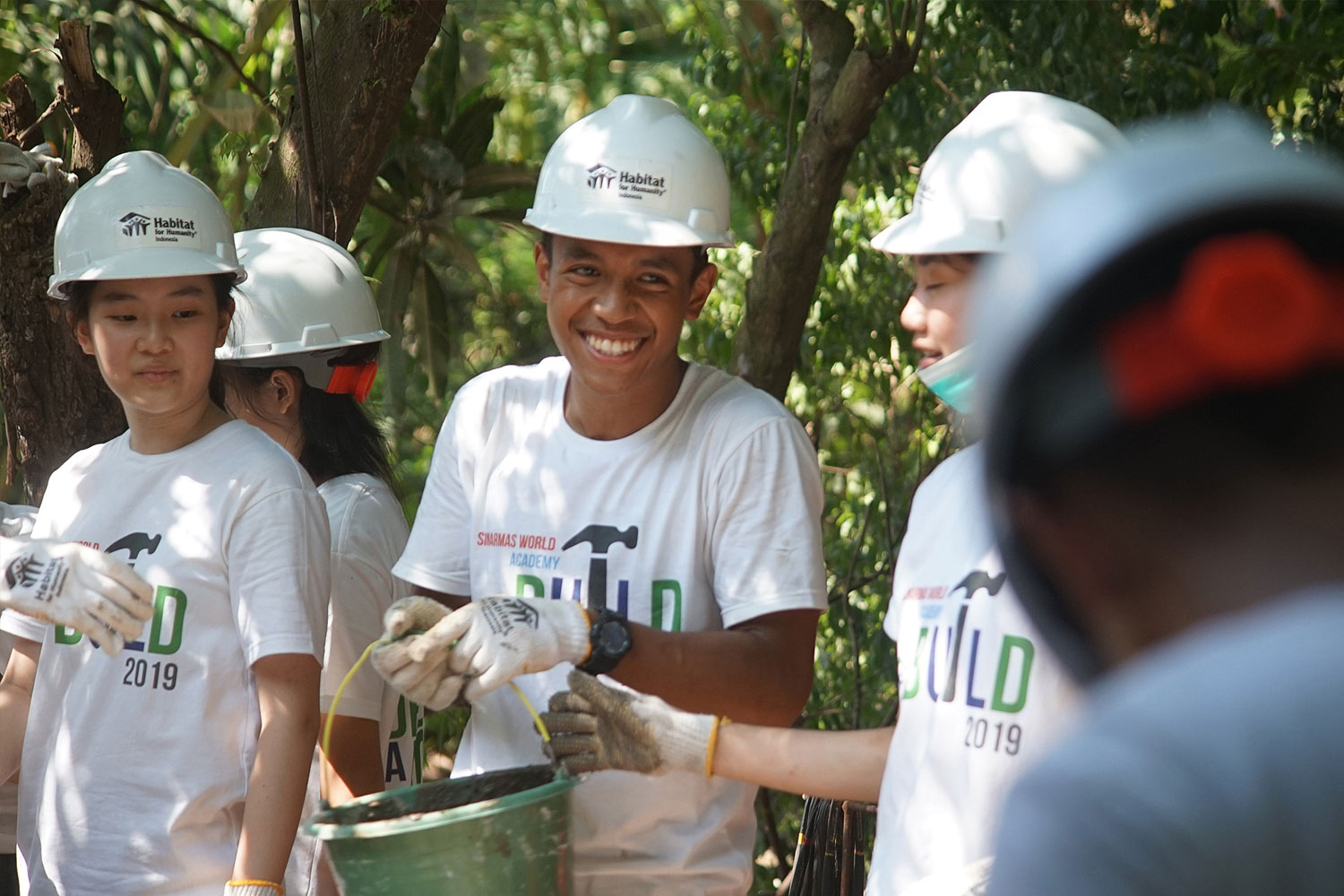When the subject of education comes up in conversation, the usual talking points crop up: homework, academic papers and the oft-dreaded finals.
Of course, academic performance is very much an important aspect of one’s future, so it is expected that students will take this in earnest. Whether it is understanding a mathematical formula or how the mitochondria is the powerhouse of a cell, students of all ages and grades will have a lot on their plates.
A classic question that often comes up whenever a student is at their wits’ end and drowning in textbooks is “how and when will I apply all of this knowledge in real life?” Obviously, everything learned will serve as the foundation for higher education and be put into practice when they are absorbed into the workforce.
But, they may ask again, how will this be applied in the real world? Apart from answering trivia questions in a pub quiz, how will this be relevant?
The answer can be found in study programs that encourage active student participation, such as the CAS program.
An important element of the International Baccalaureate (IB) curriculum, CAS stands for creativity, activity and service. Each strand complements the student’s study program through projects that integrate personal interests and a sense of community, fostering life skills such as collaboration, problem solving and decision making.
One example where CAS can be found is at the Sinarmas World Academy (SWA). Based in BSD, South Tangerang, Banten, SWA offers an international education program from the toddler years all the way to grade 12, incorporating the national curriculum and Cambridge, as well as IB.
Speaking to The Jakarta Post, SWA CAS coordinator and (Interim) SA coordinator Elma said that the program applied to year 11 and 12 students as part of the IB Diploma program, a two-year pre-university program that focuses on both knowledge and self actualization.
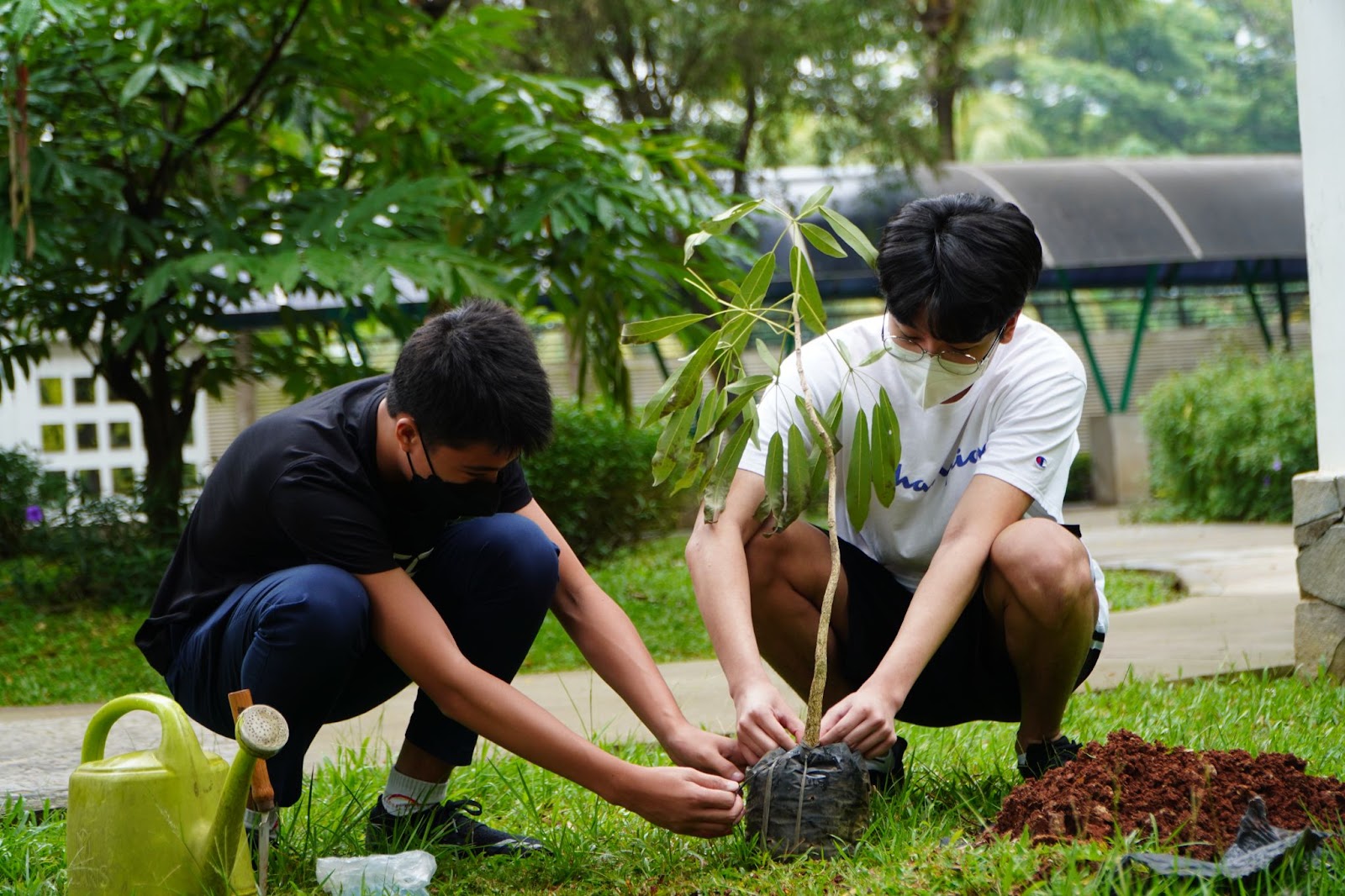 (Courtesy of Sinarmas World Academy)
(Courtesy of Sinarmas World Academy)
“The idea is that [students] can take what they learn from the classroom and apply that to real life situations, real life problems that they try to solve, so they can build ownership and make sense of what they’re learning. For example, while learning about social entrepreneurship in class, they set up an online charity shop and use the proceeds to help build a toilet for a community that they are working with,” she explained.
“We start early from grade 6, and by the time they are in grade 12, they will have six to seven years’ experience of leading collaborative projects, being involved, providing direct and indirect service, and advocating for issues.”
Elma highlighted SWA’s size, which she described as “not too big”, as being able to provide more opportunities for students in their projects, as well as for the teachers and faculty to support the students through their interactions.
“For grade 11 and 12, CAS is a core part of their IB program and rightly so we think, because it differentiates each student from their peers. They can have similar grades, but in terms of the project experiences that they have had, those aspects are what make our students stand out. This unique experiential learning journey helps them achieve success in their university applications and interviews for scholarships,” she said.
Above and beyond textbooks
A student’s study program is expected to provide the individual with a general, all-round range of knowledge, enabling them to seamlessly integrate themselves into their major and occupation of choice.
According to Elma, CAS complements this by providing students with “the intrinsic motivation to make the most impact”, locally and globally.
“The thing about CAS and Service as Action [SA] is that we don’t judge [students] on how much time they spend, for example. We don’t have percentages to score them with. It’s a different sort of satisfaction when they have been able to achieve their aims or overcome obstacles. [...] It’s about developing leaders, creating changemakers, and helping students to make an impact in the real world,” she said.
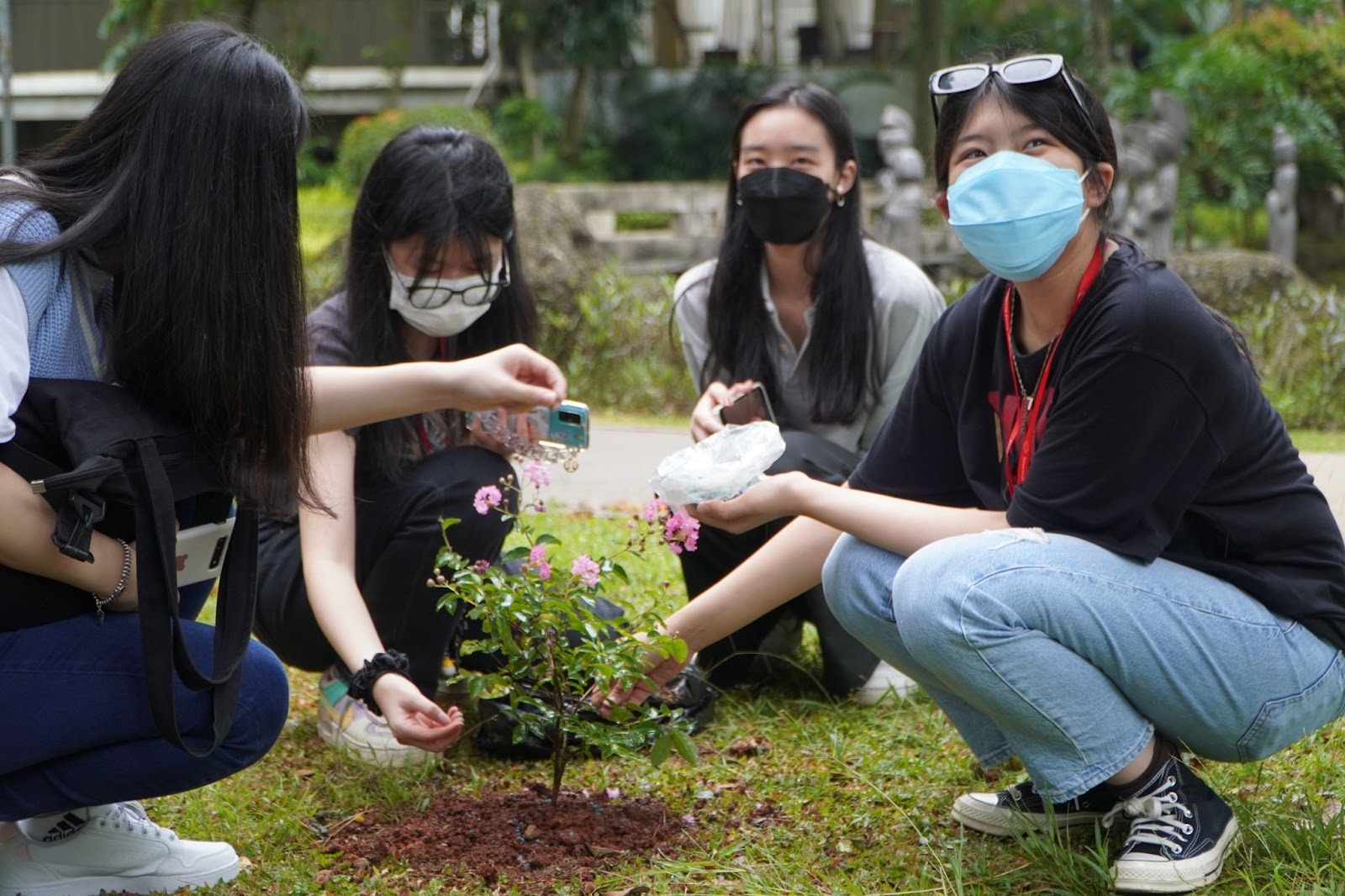 (Courtesy of Sinarmas World Academy)
(Courtesy of Sinarmas World Academy)
Elma noted that while CAS is a core requirement of the IB study program, the students at SWA go beyond box ticking, describing them as “quite ambitious” in setting their goals and also very determined in their efforts.
The 18-month CAS program itself allows students the freedom to pursue their interests and group of their choice, along with the freedom to plan and organize their own initiatives, with teachers serving as supervisors.
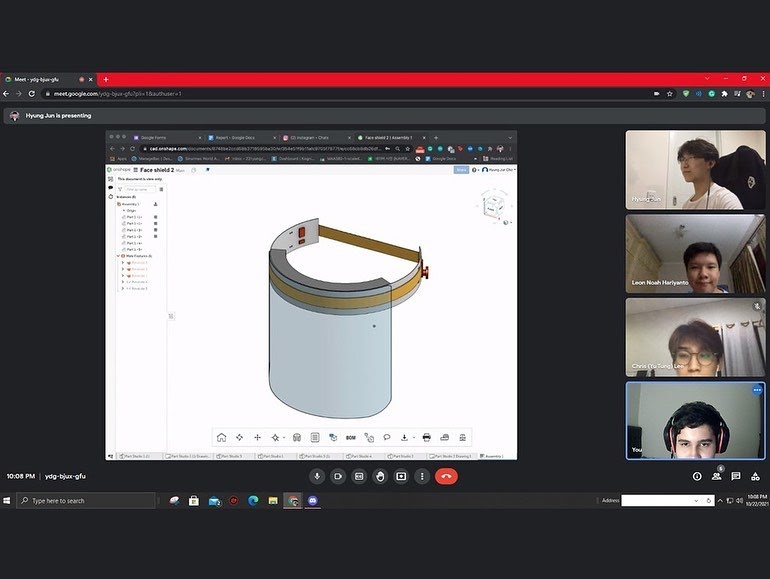 (Courtesy of Sinarmas World Academy)
(Courtesy of Sinarmas World Academy)
Recent examples of projects include producing face shields using recycled materials to benefit local clinics and health centers, printing vegetarian recipe books containing Indonesian, Korean and other western dishes contributed by the community and cooked by the students, as well as creating bilingual storybooks to be donated to nearby schools.
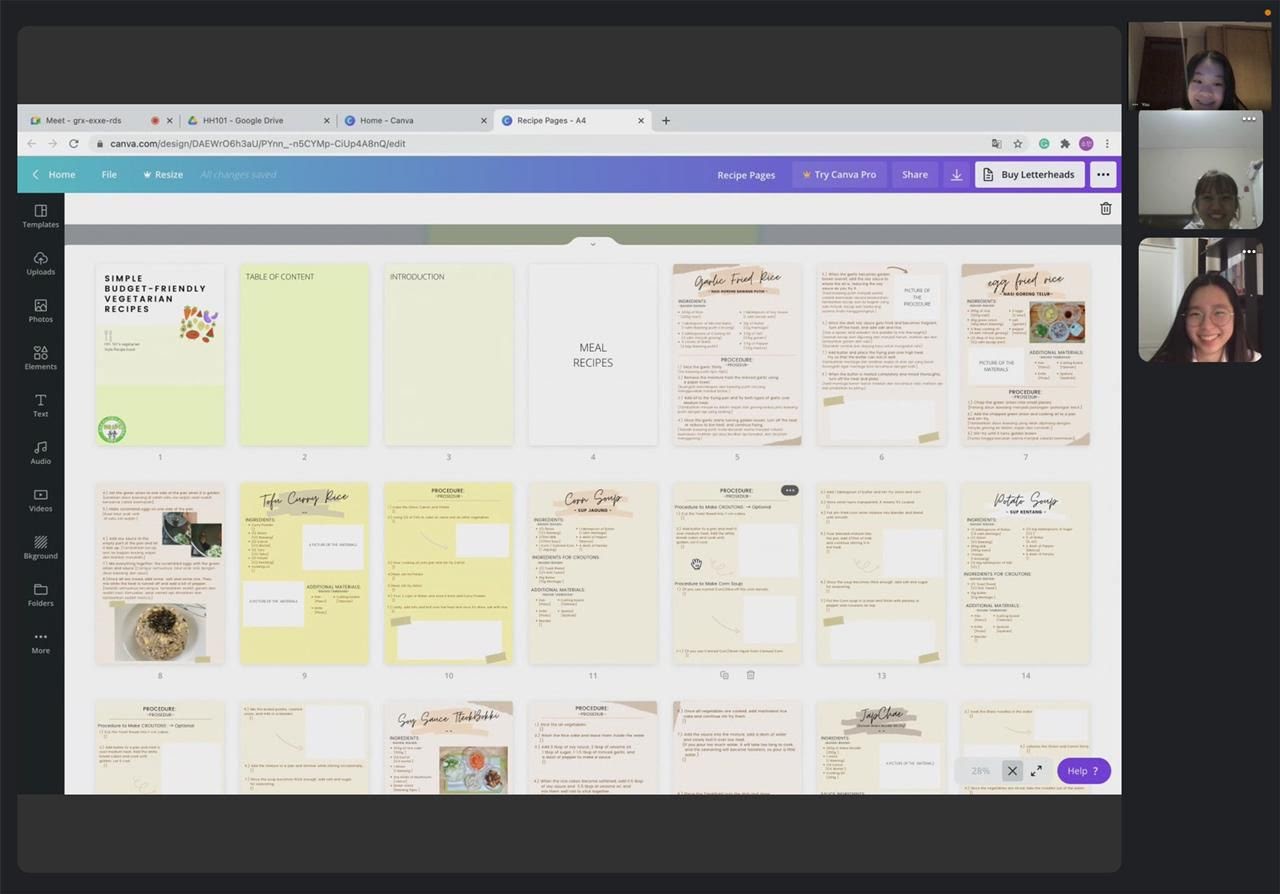
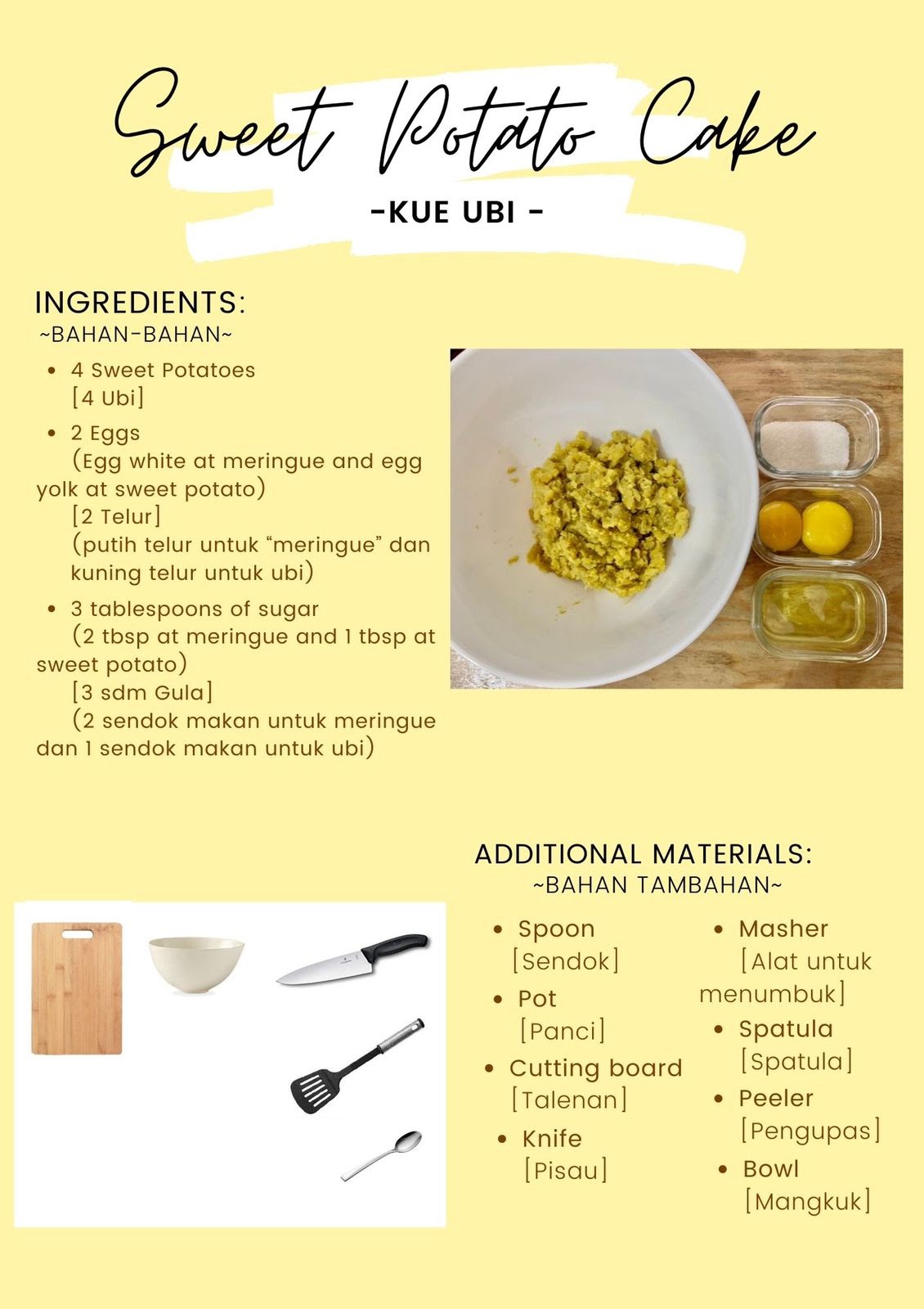
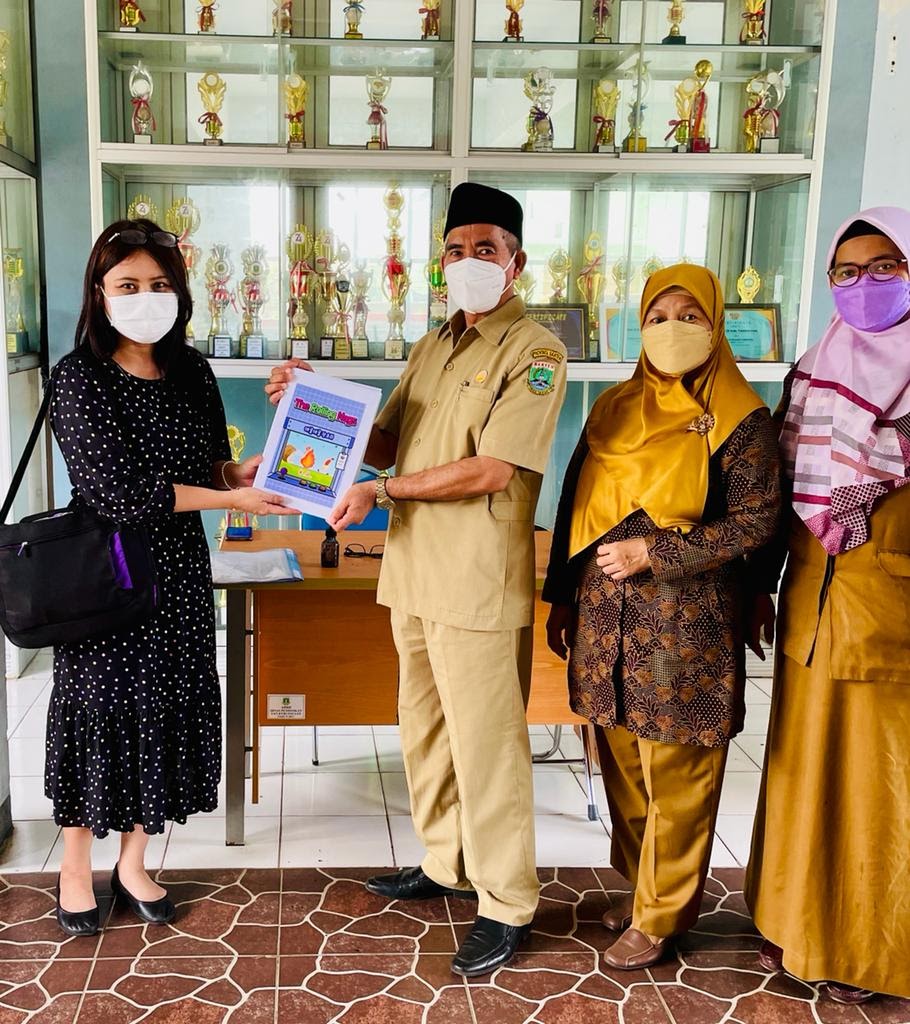 (Courtesy of Sinarmas World Academy)
(Courtesy of Sinarmas World Academy)
As a continuation of a student’s IB award-winning Personal Project of creating an app for the ancient Javanese script, a project group was formed with the aim of preserving the Javanese language and culture. Students collaboratively produced informative videos in English, as well as using their creative talents to compose original music, blending Javanese with modern elements.
To get valuable insights and relevant, up-to-date advice from practitioners, SWA students also organized leadership workshops with the theme “Youth Leadership in a Pandemic”, inviting a guest speaker live from the World Health Organization headquarters in Geneva, Diah Saminarsih, senior advisor on gender and youth for the director-general of WHO. When she came to Jakarta, a few students had a further chance to have a panel discussion and presented a token of appreciation from the school.


 (Courtesy of Sinarmas World Academy)
(Courtesy of Sinarmas World Academy)
At the same time, the projects can also focus on current and pressing issues. For example, SWA students organized direct actions to benefit victims of the major flooding in East Nusa Tenggara and the eruption of Mount Semeru last year.
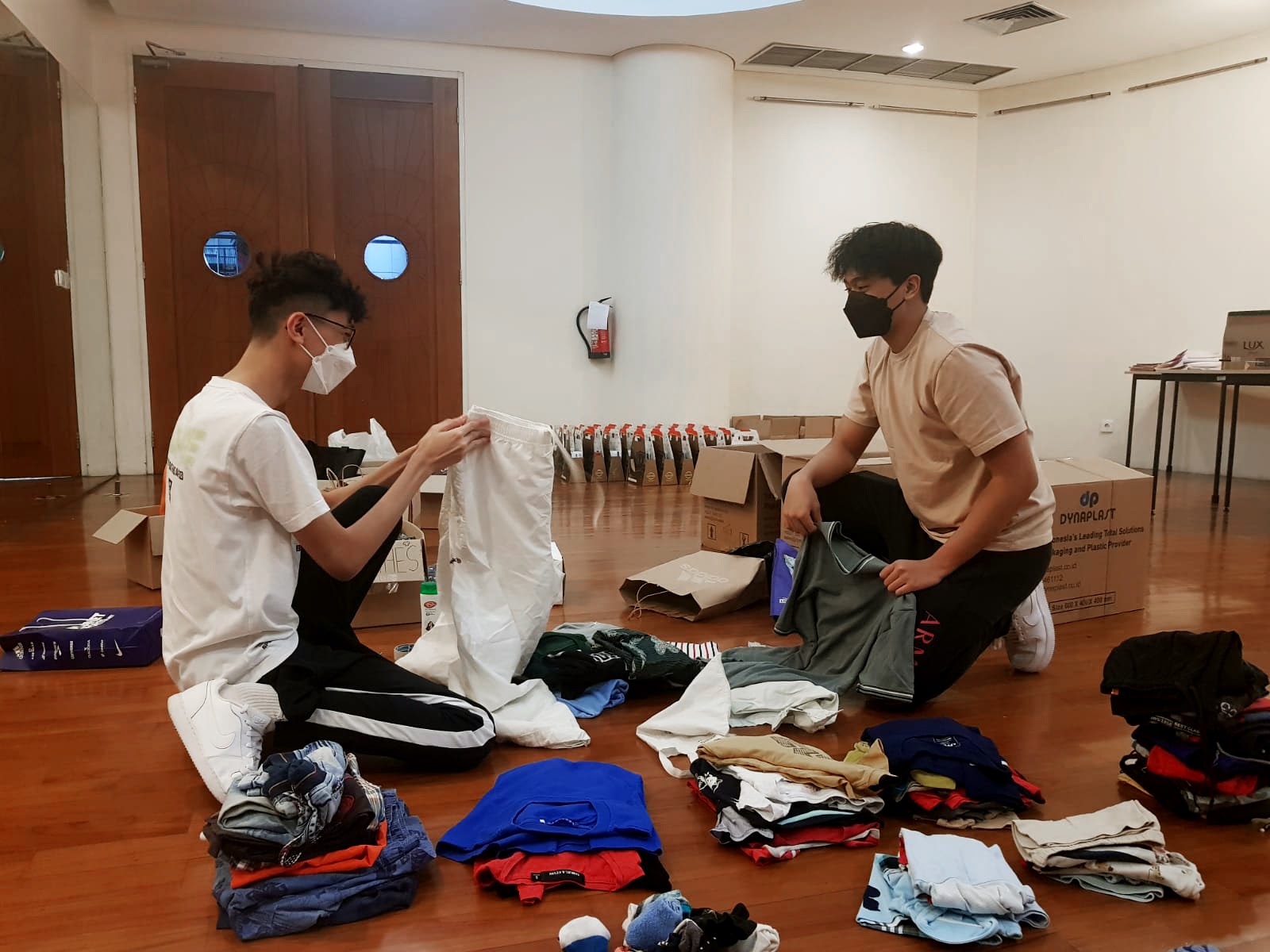 (Courtesy of Sinarmas World Academy)
(Courtesy of Sinarmas World Academy)
One notable CAS project undertaken by the current batch of students is in setting up online teaching sessions for students in Sumbawa, West Nusa Tenggara, which started in November 2020 and is still ongoing to date. A multigroup collaborative project, SWA students take turns teaching online every Saturday morning. The student-led initiative earned third place in the global competition CAS Project Challenge organized by CAS Trips.
Finding the right balance
Anyone who has ever been a student knows how hard it is to juggle multiple assignments and projects while leaving a smidgen of me-time to rest and unwind. Current students can also testify about having to deal with the still ongoing pandemic on top of that, which further limits their options in both studying and relaxing.
Even so, the students at SWA seem to take their studies and projects in stride, with many of them finding satisfaction from the school’s focus on a more hands-on approach.
Sherry, a 10th grader, noted that the SA program she and her classmates undertake is a novel approach to the learning process. The program that starts in sixth grade, she says, provides students with outside experience beyond academic writing and the usual grades in their regular classes.
There are many similarities in the SA and CAS programs, one is in their perspective on giving back to the community. In one project, Sherry and a friend took an online medicine course on Coursera in order to teach first aid, while earlier in eighth grade she taught elementary students how to create trash cans out of recyclable water bottles.
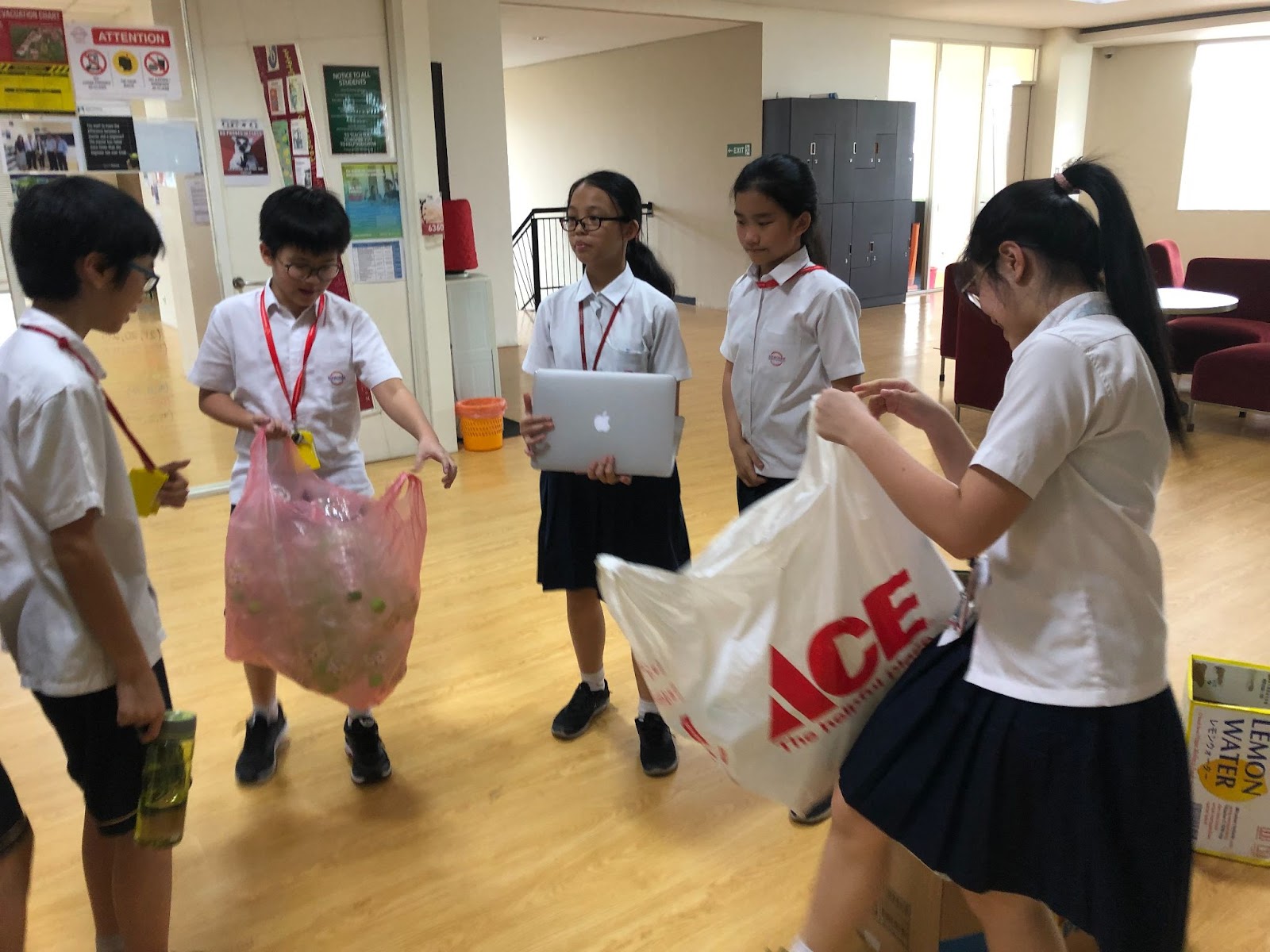
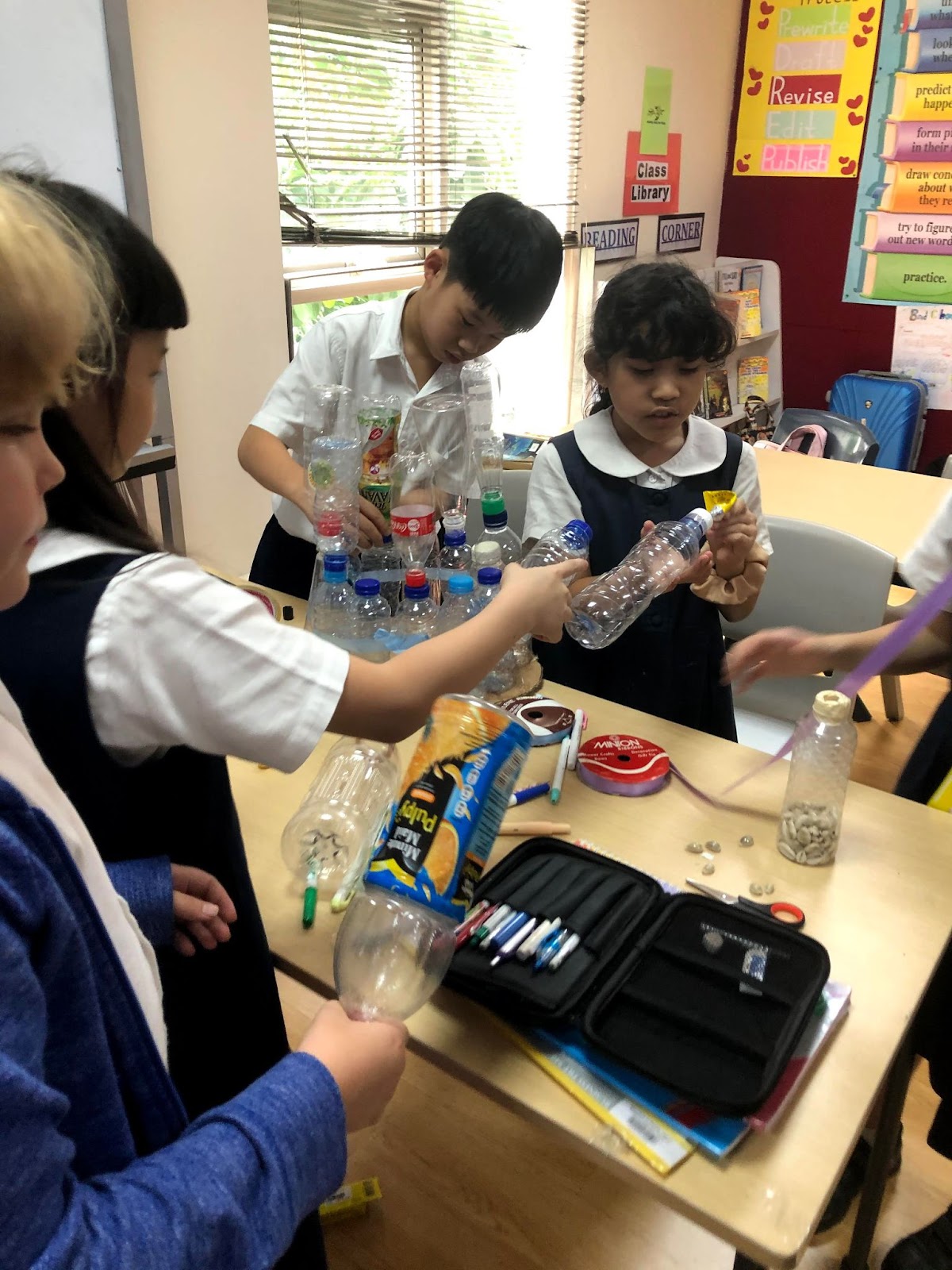 (Courtesy of Sinarmas World Academy)
(Courtesy of Sinarmas World Academy)
“Personally I found that I learned so many skills that I wasn’t able to learn at school, for example communicating with younger students, problem-solving skills, as well as investigative skills like finding out what we want to do. I think it shaped me as a completely different person,” she said, adding that learning in a fun, hands-on way is a great opportunity for every student.
Meanwhile, 10th grader Evelyn said that SA and CAS activities provided a different sort of satisfaction compared to receiving stellar grades in her studies. The feeling of getting an A, she said, passed quickly, but the feeling of accomplishment that came from seeing the project she had worked on so long come to fruition was more long term.
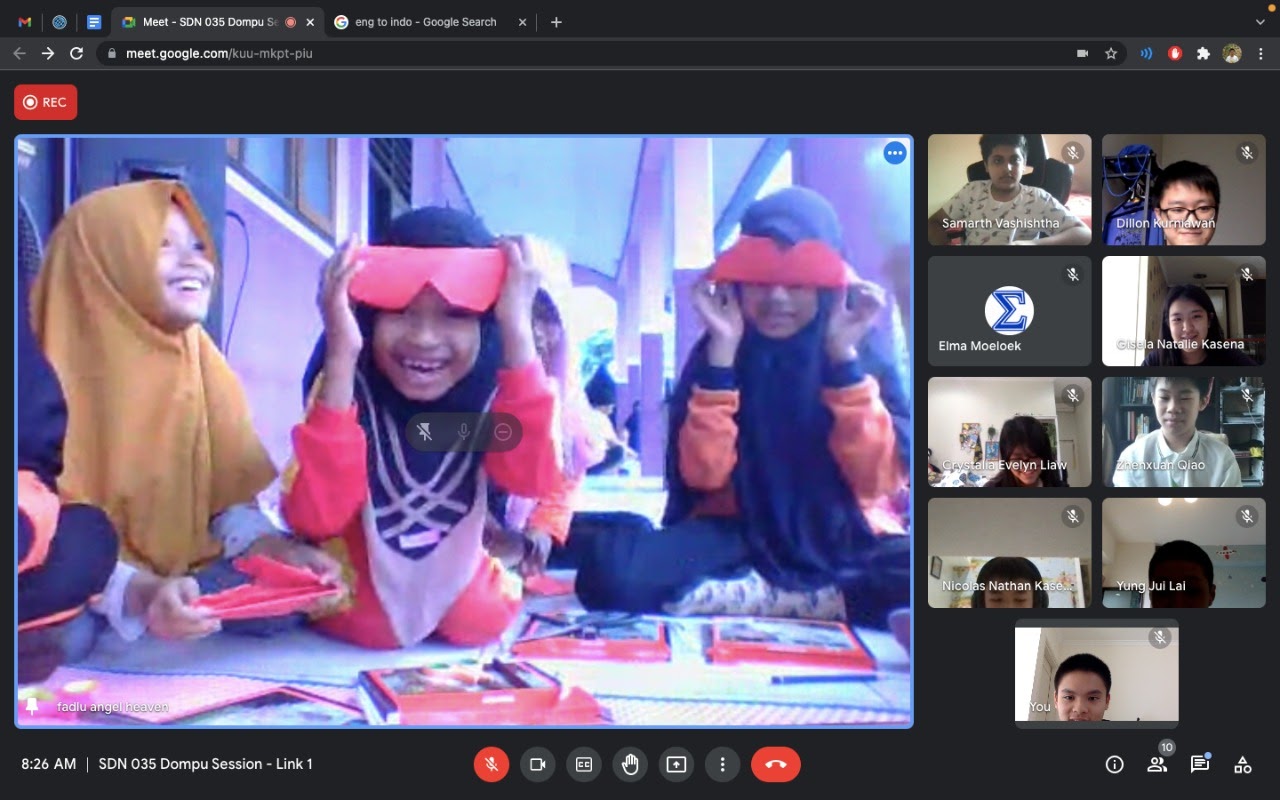 (Courtesy of Sinarmas World Academy)
(Courtesy of Sinarmas World Academy)
“I’m one of the ones teaching on the Saturday morning sessions, so every Saturday morning I wake up at 7 a.m. and I’m like, ‘do I really want to do it today? I would do the lesson and call [my friend] and be like ‘the kids were so nice today’ while we look at the pictures of them being happy,” she recalled.
“I think it just feels good to do good for others, and SWA really helped us build that empathy, compassion, and that intrinsic motivation.”


